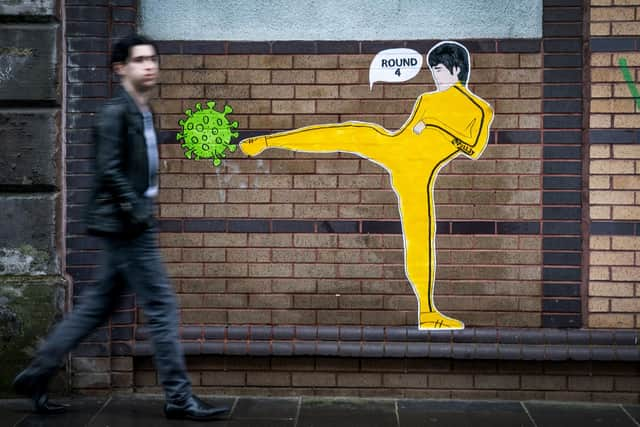Covid Scotland: Why the easing of restrictions comes at a cost
Todaymarks a significant moment in Scotland’s journey out of the coronavirus pandemic, with the lifting of measures designed to stem the spread of the Omicron variant.
The development will come as a huge relief for many, such as the hospitality sector, live events organisers and indoor sports clubs, who have been forced to endure a torrid time of late.
Advertisement
Hide AdAdvertisement
Hide Ad

For those who have accused the Scottish Government of lagging behind the science, it will be seen as overdue. Yet among those who continue to suffer and lose loved ones to a pandemic close to entering its third year, there will be concern the move is premature.
Whatever your view, the scaling down of restrictions represents a cautious move compared to England. There, the UK Government is set to scrap all of its so-called ‘plan B’ measures, meaning an end to vaccine certificates for entering venues, mandatory face coverings, and guidance around home working.
There is considerable trepidation about these steps down south, particularly among vulnerable groups, who feel like their welfare and concerns are being abandoned in the name of political expediency.
We should not be so naive or cocksure as to presume that similar anxieties do not exist in Scotland. As our health correspondent Elsa Maishman reports today, the easing of restrictions can have a damaging impact on people who are already mentally ill or otherwise vulnerable.
Behavioural scientists know people act according to the risks they perceive, and there is a danger the easing of the safeguards brought it to combat Omicron will result in lower levels of compliance with the restrictions that remain.
Arresting that trend requires strong and consistent government messaging, but as has been through the case throughout Covid-19, personal responsibility is key.
So it is crucial that while many people will be rejoicing today, we take heed of the fears of others and look out for one another.
There is still a considerable way to go before Scotland is free from the scourge of Covid-19, and even though we may see light at the end of the tunnel, the ruinous legacy of the pandemic will be felt for decades to come.
Comments
Want to join the conversation? Please or to comment on this article.
